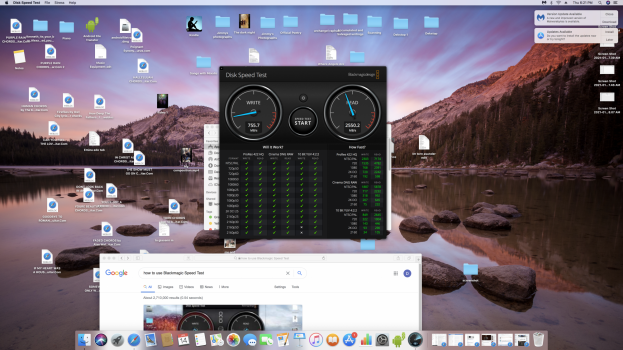I was told to take screen shots. I will attach them now.
There are nothings unusual in the screenshots of activities monitor. CPU usage, memory usage are in safe zone.
Then the last thing we can think about, and you can do, is de-fusion your hard drives.
128GB of SSD is enough for OS.
Move all of your data to the HDDs, that including all of the items shown on your desktop screen, do it manually and don't let the Mac do it for you. => Use finder to access the HDD parts, create folders on that volume, and move all files there.
The working mechanism of Fusion drives are: when you are occupying more than the capacity of the SSD part of the Fusion, Mac OS will try to re-organize your files, moving less accessed files to HDD part, and it do it all the time, obstructing the internet cache read/write process. Worst case scenario is the internet cache are on the HDD part.
Organize your file manually by moving all personal data (which is less accessed) to the HDD part will make the system smarter => smoother web surfing experience.
My iMac 2009 sometimes has only 4GB or RAM and 128GB SSD, but I don't experience any slugginess in light Word/Excel using, web surfing, video watching, etc, both in Catalina and Chrome, with 5,6 tabs opening.



